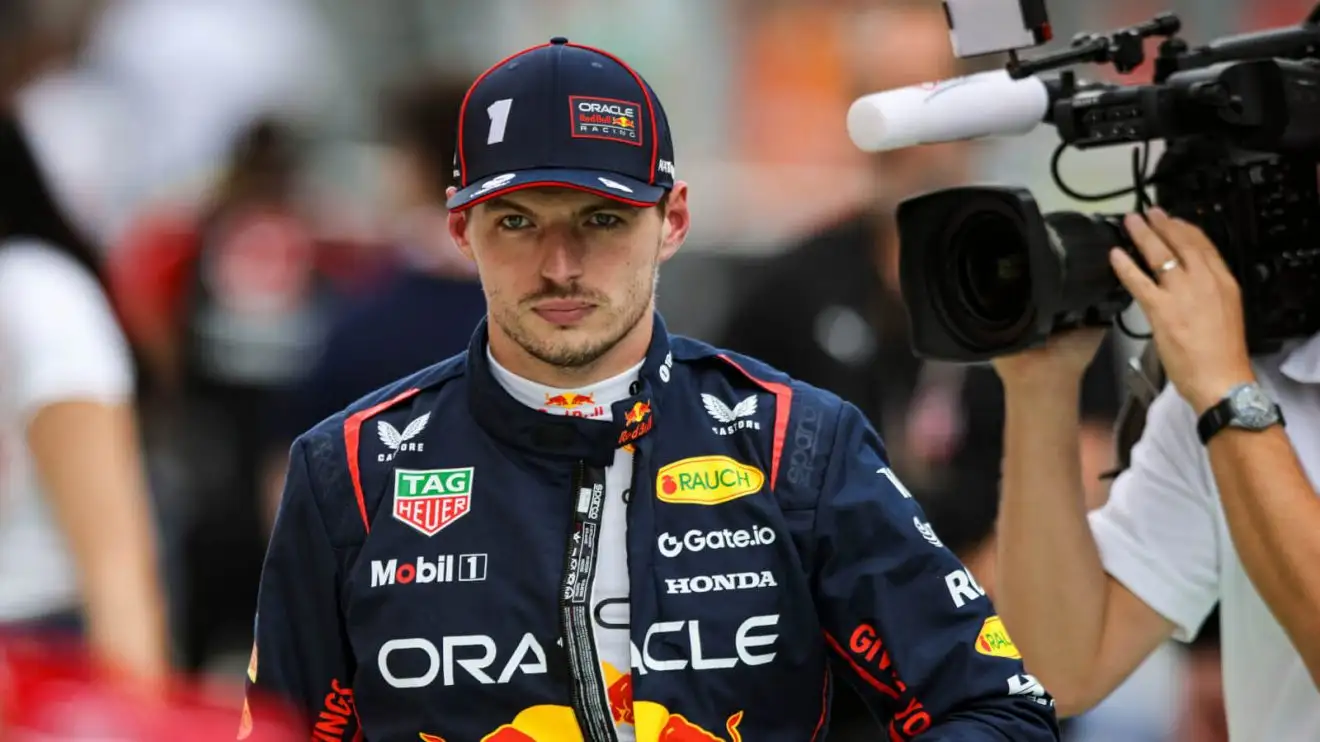Villeneuve makes blunt Max Verstappen claim in ‘Senna era’ comparison

Max Verstappen is a four-time World Champion with Red Bull
Is Max Verstappen one of the greatest Formula 1 drivers of all time? There are many who would make that argument.
But Jacques Villeneuve would not. According to the former World Champion, Verstappen is a “pure racer,” but he wouldn’t outshine the competition of Ayrton Senna’s era.
Max Verstappen is a “pure racer,” but not the best of all time
Ask a group of Formula 1 fans to pick the greatest, purest racer in the sport’s 75-year history, and there’s a good chance you’ll kick up an argument for the ages rather than getting any serious answer.
Many are able to point to the likes of Juan Manuel Fangio, Jim Clark, Ayrton Senna, and Michael Schumacher as being icons beyond repute — if not the best to ever compete in F1, then the best in their respective eras.
In the modern era, Max Verstappen has cemented his place in the history books. From his teenage debut to his four consecutive world championships, the Dutch driver has made a strong impression on the racing world with his hard-nosed talent.
But does that make him exceptional in the scope of Formula 1 history? Jacques Villeneuve isn’t so sure.
More F1 2025 analysis from PlanetF1.com:
👉 Seven of the biggest F1 scandals ranked by shock factor
👉 Ten crazy rules that used to exist in F1
In an interview with RacingNews365, Villeneuve made some strong claims about the quality of drivers in the modern era, particularly when compared to those of the past — including why he believes that modern drivers are less skilled than their predecessors.
“Right now, an average driver can look acceptable,” Villeneuve said to begin his explanation.
“If you look at the past, an average driver would be two seconds off the pace, the way the cars were.
“Now, an average driver will be half a second [behind]. Okay, that’s acceptable — but you meant less difference.”
For Villeneuve, this is “because of the way the cars are driven.”
“They’re very stable cars,” he explained, “and also, once you get to race pace, they slow down a lot to work, to control the tyres and everything.
“So it’s just a different F1 driver, different kind of cars.”
As a result, Villeneuve believes that the quality of the field overall has declined.
“If you look at the past, in Ayrton Senna and [Alain] Prost’s era, you had five drivers like Max [Verstappen] every year,” he said.
“Now you only have Max, so the playing field is…
“Now there’s a lot of good drivers, where before there were a few extremely good drivers and a bunch of good drivers. So, I think the whole scheme has changed.”
But where does that leave Verstappen?
“Max is not better than the very good ones of the past,” Villeneuve stated.
“He’s alone right now, so he stands out. He makes the difference.
“He is a pure racer, and there’s not many of them anymore…”
But Villeneuve seems to be implying that Verstappen’s recent dominance is less to do with his surplus of talent, and more to do with a dearth of talent in the rest of the field. It follows that if there were more drivers of that calibre in the field, Verstappen would be facing stiffer competition.
It’s a bold statement, but as with many other arguments about how to properly rate drivers between eras, it doesn’t necessarily get at the complete heart of the sport’s ever-evolving situation — where cars have grown more reliable, seasons have expanded, tracks have gotten safer, drivers have prioritized the optimization of physical performance, and teams operate with near-military precision.
Read next: Uncovered: The technical details behind F1 2025’s design secrets





